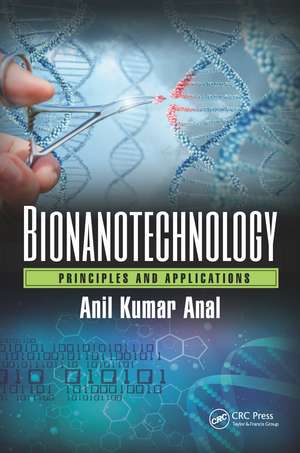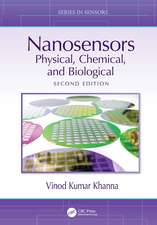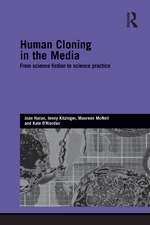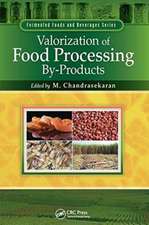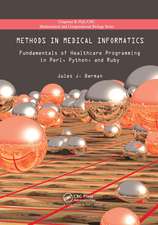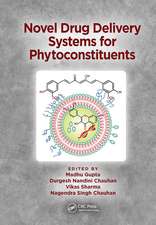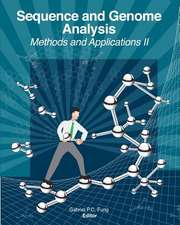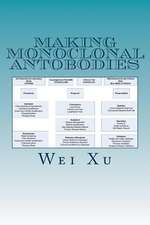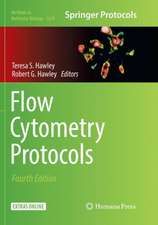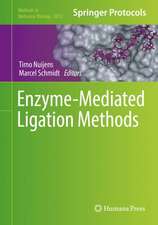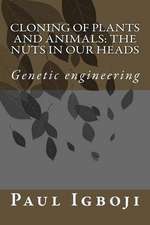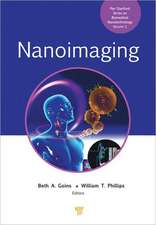Bionanotechnology: Principles and Applications
Autor Anil Kumar Analen Limba Engleză Paperback – 30 sep 2020
| Toate formatele și edițiile | Preț | Express |
|---|---|---|
| Paperback (1) | 462.43 lei 6-8 săpt. | |
| CRC Press – 30 sep 2020 | 462.43 lei 6-8 săpt. | |
| Hardback (1) | 683.40 lei 6-8 săpt. | |
| CRC Press – 16 feb 2018 | 683.40 lei 6-8 săpt. |
Preț: 462.43 lei
Nou
Puncte Express: 694
Preț estimativ în valută:
88.49€ • 96.50$ • 74.61£
88.49€ • 96.50$ • 74.61£
Carte tipărită la comandă
Livrare economică 24 aprilie-08 mai
Preluare comenzi: 021 569.72.76
Specificații
ISBN-13: 9780367656409
ISBN-10: 036765640X
Pagini: 203
Dimensiuni: 156 x 234 mm
Greutate: 0.29 kg
Ediția:1
Editura: CRC Press
Colecția CRC Press
ISBN-10: 036765640X
Pagini: 203
Dimensiuni: 156 x 234 mm
Greutate: 0.29 kg
Ediția:1
Editura: CRC Press
Colecția CRC Press
Public țintă
Academic and Professional Practice & DevelopmentCuprins
1. Bionanotechnology and Cellular Biomaterials 2. Nanostructured Cellular Biomolecules and Their Transformation in Context of Bionanotechnology 3. Genomics and Bionanotechnology 4. Protein Engineering and Bionanotechnology 5. Immune Systems, Molecular Diagnostics, and Bionanotechnology 6. Bionanofabrication and Bionano Devices in Tissue Engineering and Cell Transplantation 7. Immobilization of Biomolecules 8. Nanostructure-Based Delivery Dosage Forms in Pharmaceuticals, Food, and Cosmetics 9. Nanoparticles, Biointerfaces, Molecular Recognition, and Biospecificity
Notă biografică
Dr. Anil Kumar Anal is Head of the Department of Food Agriculture and Bioresources and Associate Professor in Bioprocess Technology at the Asian Institute of Technology (AIT), Thailand. His background expertise is in the Biotechnology, Food and Industrial Microbiology, Food Safety, Food processing and preservation, valorization of bioresources and agro-industrial waste to fork and value addition, including its application in various food, feed, neutraceuticals, cosmetics, and pharmaceutics. His research interests also include the formulation and delivery of cells and bioactive for human and veterinary applications, controlled release technologies, particulate systems, application of nanotechnology in food, agriculture and pharmaceutics, and functional foods. Dr. Anil has authored 5 patents (US, World Patents, EU, Canadian and Indian); more than 100 referred international journal articles, 25 book chapters, 3 edited books, and several in International conference proceedings. He has been invited as Keynote Speaker and Expert in various Food, Biotechnology, Agro-Industrial Processing and Veterinary, as well as Life Sciences based conferences and workshops organized by national, regional, and international agencies. Dr. Anil has been serving as Advisory members, Associate Editor, Members of Editorial Board of various Regional and International peer-reviewed Journal publications. Dr. Anil has experiences of conducting various innovative research and product developments funded by various donor agencies.
Descriere
The book covers several important and unaddressed aspects of cells, biomacromolecules and their structures, along with interactions and roles in developing devices for applications in medicine, agriculture, and food sectors. It teaches the basic structures and interactions of biomacromolecules for developing biocompatible and eco-friendly d
